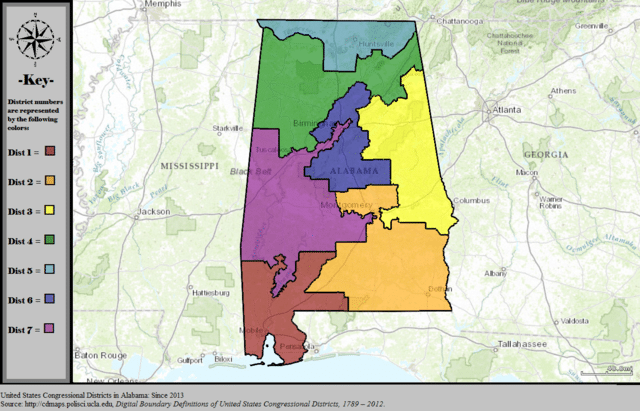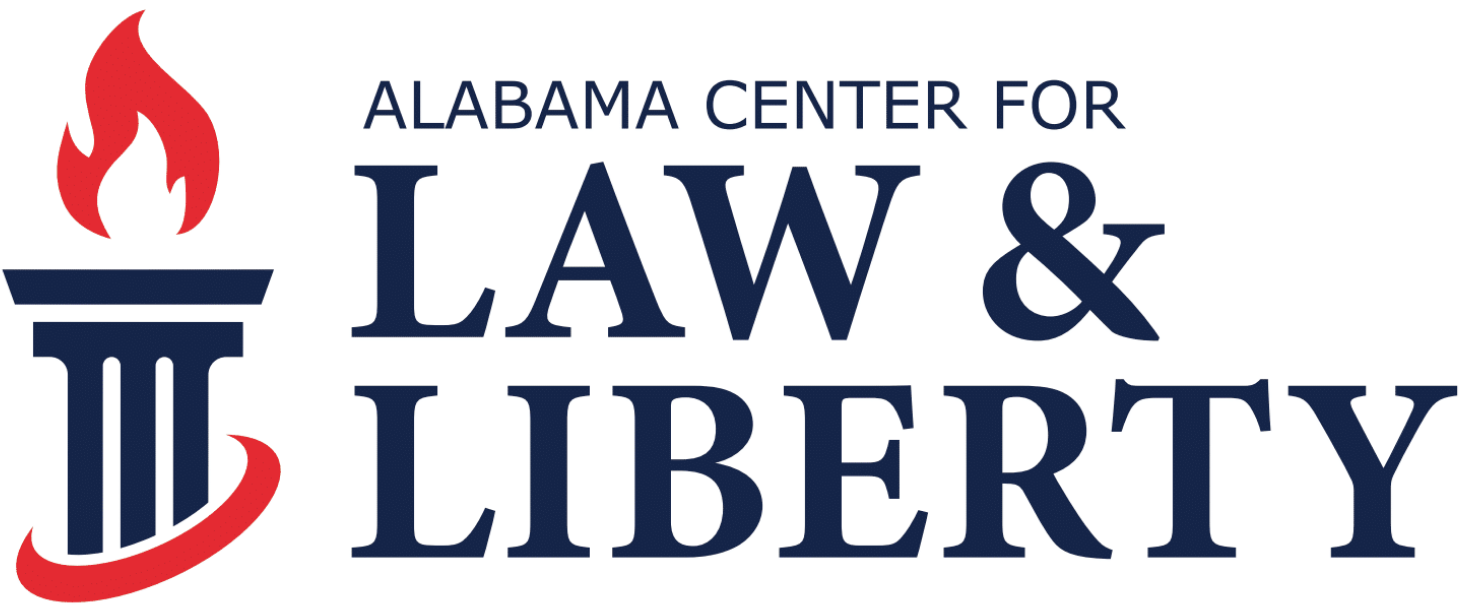Merrill
v.
Milligan
ACLL Role:
Case Start Date:
Deciding Court:
Original Court:
Practice Area(s):
Amicus
November 15, 2021
United States Supreme Court
U.S. District Court, Northern District of Alabama
Limited Government
ACLL Role: Amicus
Case Start Date: November 15, 2021
Deciding Court: United States Supreme Court
Original Court: U.S. Circuit Court, Northern District of Alabama
Practice Area(s): Limited Government
CASE SNAPSHOT
After the 2020 Census, Alabama redrew its congressional district maps to reflect the changes in population since the last census. Although it made only slight changes to its previous congressional map, the ACLU sued the State, claiming that the maps violated the Voting Rights Act. A three-judge panel of the United States District Court for the Northern District of Alabama agreed, reasoning that the State had to draw two majority-black districts or something close to it. The State appealed to the U.S. Supreme Court, and ACLL filed an amicus brief in its support. ACLL argued that neither the Voting Rights Act nor the Constitution require the State to intentionally discriminate on the basis of race in how it draws congressional lines. The Supreme Court issued a stay in Alabama’s favor and is now considering the merits stage.
STATUS
ACLL filed a friend-of-the-court brief at the Supreme Court on February 1, 2022.
FOR THE MEDIA

CASE SUMMARY
Background
In the aftermath of the Civil War, the United States added the Thirteenth, Fourteenth, and Fifteenth Amendments to the United States Constitution to fix that which was lacking at our Founding. Finally, the Constitution prohibited slavery, racial discrimination, and the abridgment of voting rights on the basis of race. As Justice Harlan would famously write in his Plessy v. Ferguson dissent, “Our Constitution is color-blind, and neither knows nor tolerates classes among citizens.” The principle that “all men are created equal” dictates that individuals be treated equally and that discrimination on the basis of race is illegitimate.
To help secure this principle, Congress passed “Section 2” of the Voting Rights Act of 1965. Section 2 rightly forbade the States from engaging in practices that restricted minorities’ access to the ballot box. Yet in 1986, the Supreme Court held in Gingles v. Thornburg that the Voting Rights Act sometimes requires the States to draw congressional districts based on racial lines. Interpreting a statute to require some level of racial discrimination in order to end racial discrimination is a very odd construction indeed.
In 2021, after the 2020 federal census data came in, Alabama redrew its congressional districts to reflect slight changes in Alabama’s population. Despite the fact that the map was very similar to the old one, the ACLU sued on behalf of several plaintiffs who claimed that the new map violated Section 2. A three-judge panel agreed, ordering Alabama, in record time, to redraw its congressional maps to create two majority-black districts or something close to it before the 2022 primaries. The State immediately appealed to the United States Supreme Court seeking emergency relief.
Justice Thomas Addresses the Problem
In 1994, Justice Clarence Thomas, the most conservative justice on the U.S. Supreme Court and its only black justice, began to argue that the Court had been misinterpreting the Voting Rights Act for quite some time. In an extensive and careful writing, Justice Thomas walked through Section 2 word by word and concluded that it prohibited only practices that hindered minorities’ access to the ballot box. Justice Thomas argued that interpreting the law to require some level of racial discrimination in how congressional lines are drawn did not comport with the statute and subverted the principle of a color-blind Constitution.
Since 1994, Justice Thomas, joined by Justice Scalia and eventually Justice Gorsuch, has been calling on the Court to reexamine its Section 2 precedents. In this case, the trial court appeared to believe that it was faithfully applying the Supreme Court’s precedents, especially Gingles. Thus, ACLL believed that this would present a good opportunity to ask the Court to consider Justice Thomas’s position.
ACLL’s Role in This Case
When the State asked the Supreme Court for emergency relief, it did not challenge the Supreme Court’s Section 2 precedents. Instead, it argued that the trial court had misapplied them. ACLL took the opportunity to address what it believed was the heart of the problem: the Supreme Court’s precedents, especially Gingles. To complement the State, ACLL argued that if the Court believed that the trial court correctly applied its precedents, then it should take this opportunity to consider whether those precedents should be overruled. ACLL argued that if the Court believed there was a “fair prospect” that it would overrule Gingles at the merits stage, then it could give Alabama the relief it was asking for.
On February 7, 2022, the Supreme Court voted 5-4 to grant Alabama a stay, meaning that it would not have to redraw its congressional districts before the primaries. JusticeS Thomas, Alito, Gorsuch, Kavanaugh, and Barrett voted to grant the stay. Chief Justice Roberts dissented, arguing that Gingles was the heart of the problem but that it was improper to disregard it at this stage. ACLL’s brief gave the Court a way around Chief Justice Roberts’s objection.
Furthermore, Justices Kavanaugh and Alito issued a concurrence, arguing that, in short, the Court did not need to reconsider the status quo (such as Gingles). The fact that Justices Thomas, Gorsuch, and Barrett did not join this concurrence suggests that they have doubts about the validity of the status quo. If that is true, then ACLL’s brief may have provided them the way around Gingles that they needed to rule in Alabama’s favor.
Importance to Limited Government
The principle that “all men are created equal” means that the government should never discriminate on the basis of race in how it treats its people. The horrors of slavery and Jim Crowe demonstrate what can happen if the government does not view all people as equal before the law. Because of that, it is important that the government never engage in racial discrimination, even if it thinks it is “good discrimination” (such as drawing congressional districts on racial lines). Otherwise, the government is no longer committed to the principle that all men are created equal, which is a pillar of limited government.
Alabama Center for Law & Liberty 2213 Morris Ave, Floor 1 Birmingham, AL 35203 256-530-0519
The Alabama Center for Law and Liberty is Christian non-profit law firm.
©Alabama Center for Law & Liberty. All rights reserved.
